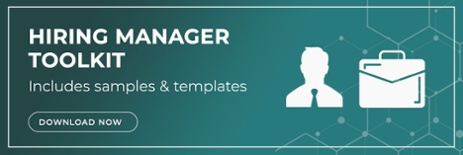Most Common Mistakes to Avoid When Interviewing a Candidate
HIRING
Do you know how to identify and hire the best candidates for your diagnostic and life-science company? It all begins with the interview. The interview lays the foundation to gather relevant information, determine whether they are a good fit, and set the stage for further communication.
Interviews that aren’t conducted properly can lead to your company losing a great candidate or making a bad hire. In fact, 74% of employers said they’ve hired the wrong person for a position, and a portion of this may be attributed to bad interviews. Here are a few common interviewing mistakes managers make during an interview and how to avoid them:
1. Not Providing a Clear Picture of the Job Requirements
Interviewers should have a clear understanding of the role when interviewing candidates. This means they must speak to everyone involved with that role to ensure they have all bases covered. Getting the job description from human resources, speaking directly to the top manager, and getting insight from the current team can help. They should be able to review these requirements with the candidate to ensure they also understand the role and any additional aspects of the role that may not have been communicated in the initial job description.
2. Being Unprepared
It is important to be prepared for interviews with potential candidates. In many cases, this is your first interaction. The last thing you want is to appear uninterested or disorganized. Having a firm list of questions to ask the candidate, being on time, reading the candidate’s resume, and highlighting talking points are all part of the pre-work before the interview. Candidates feel more comfortable when they are able to speak on specifics that are asked. They also feel more confident when the interviewer demonstrates they have done their own homework.
3. Failing to Listen
Active listening when interviewing a candidate is key. This keeps communication open, and it shows the candidate you are fully engaged. Not exercising active listening skills could cause you to miss important details that could make a difference in the hiring decision. A few ways to demonstrate effective listening include asking open-ended questions, asking follow-up questions for more detail, listening to the response, and then repeating the process.
4. Rushing the Process
When interviewing a candidate, it’s important to take your time. Rushing through an interview looks bad on the interviewer and creates a situation where you may hire the wrong person. Getting the information you need to make an informed decision takes time. It’s also important to allocate enough time on the schedule to ensure they can meet with additional people if necessary. The more important the role, the longer the interviews should take.
5. Not Taking Notes
Taking notes during the interview can be instrumental in your hiring decision, especially if there are a few viable candidates. Thorough and detailed notes can help determine which candidate best meets the goals of the organization and fits the requirements of the role. A popular option to enhance the note-taking process during interviews is scorecards, which help narrow down who fits the basic criteria. Your additional notes should cover their responses verbatim to fairly pinpoint strengths and weaknesses.
There is no do-over when mishandling an interview. By using these tips, you can work on avoiding common interviewing mistakes and be fully prepared when recruiting for the right candidate. The key is having enough in-depth communication with the candidate to ensure you don’t let the best person for the job get away.





No Comments